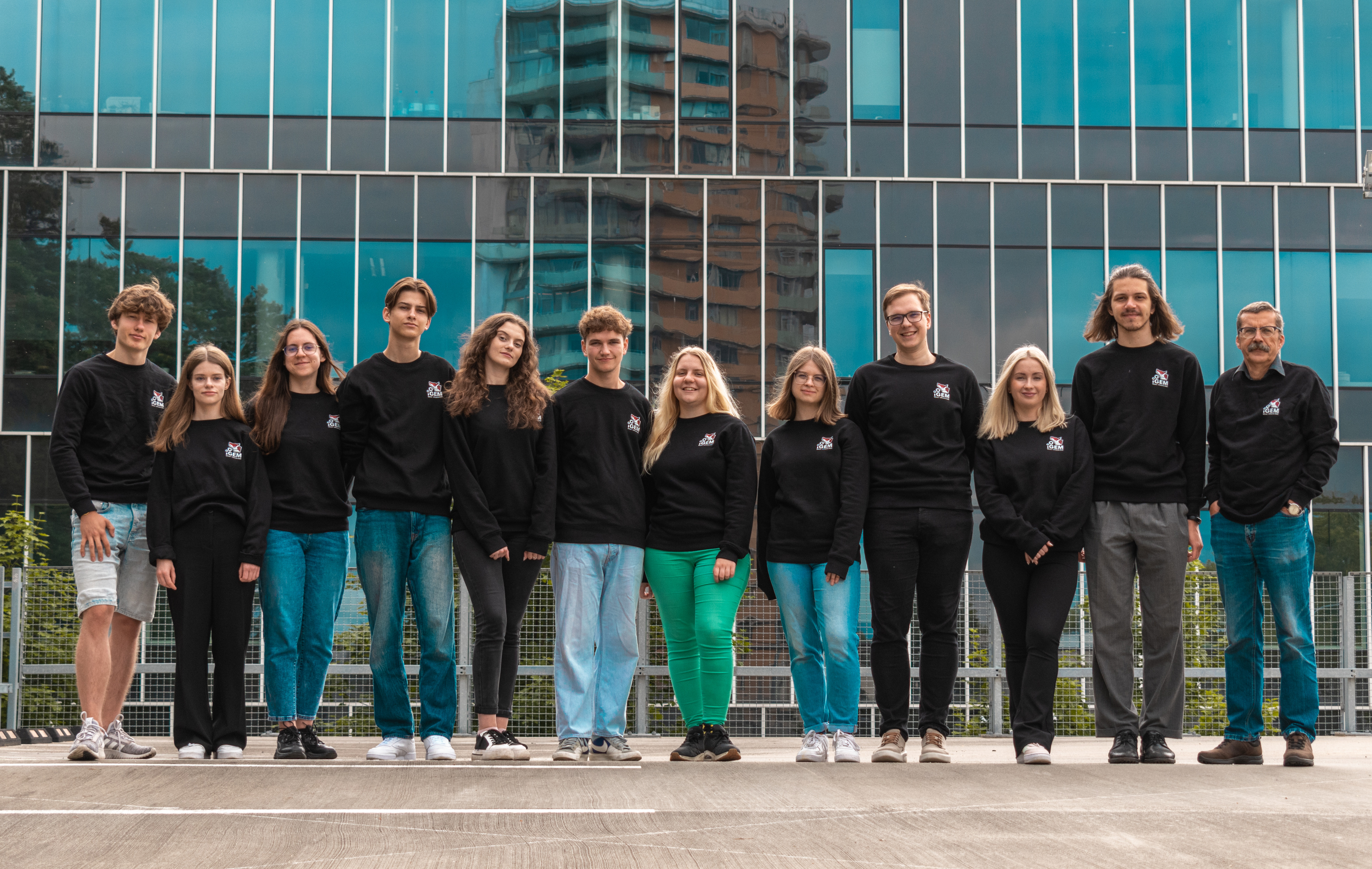
What is iGEM?
iGEM is an international synthetic biology competition with nearly 400 teams from more than 65 countries competing each year. The competition gives students from all over the world the opportunity to expand the frontiers of synthetic biology, to tackle the diverse challenges and problems that society faces every day in the fields of medicine, environment, diagnostics, energy sources, and more. Teams develop and use synthetic biology components, standard molecular biology, and genetic engineering techniques to model, test, and apply their synthetic biological systems.
The iGEM competition specifics are that the project must be completed in less than one year. This includes all stages of research: from generating the idea to conducting the research in the lab, to summarising the results and presenting them to the public. However, public involvement and education are also very important. In parallel with the project in the laboratory, the team also carries out public outreach and educational activities to spread the word about its work, to raise awareness of local and global issues, and to educate the public about the science of synthetic biology.
Vilnius-Lithuania iGEM
'Vilnius-Lithuania iGEM' is the first Baltic representative in the iGEM competition. The teams have competed since 2015. So far, the Lithuanian teams have an impressive track record in the competition, winning gold medals every year and even being recognized as the best in the world twice, in 2017 and 2020. For more information on the achievements of the Lithuanian teams, click here: https://vilniusigem.lt/
'Vilnius-Lithuania iGEM' announces the selection of a new team every November/December. If you missed the auditions but believe your skills and abilities could help you surprise the world of synthetic biology, contact the team at or on the Vilnius iGEM Facebook page.
Team 2023
'Vilnius-Lithuania iGEM 2023' is the ninth team representing Lithuania in the largest international synthetic biology competition, iGEM. This year's project 'Exullose' aims to develop a copolymer of bacterial cellulose and chitosan as an easily modifiable platform. This is the first project of any Lithuanian iGEM team in the field of biomanufacturing.
Scientific supervisor
Prof. Dr. Rolandas Meškys
Instructors
-
Team members
Matas Rarivanas, Marija Duchovskytė, Aistė Židonytė, Vincentas Raudys, Augustė Stankevičiūtė, Rusnė Uzielaitė, Vytautas Savickas, Augustas Cibulskis, Martyna Vaitkūnaitė and Vilius Rastenis.
Project Idea
Cellulose, a compound commonly associated with plants, is naturally synthesized by bacteria of the Komagataeibacter genus. Bacterial cellulose is remarkable for its high purity, making it a desirable polymer for biomedical applications. However, it must be modified to adapt cellulose to perform a specific function. Therefore, with the 'Exullose' project, we aim to develop a copolymer of bacterial cellulose and chitosan – a compound that can be easily modified.
Chemical impregnation methods have already developed a copolymer of bacterial cellulose and chitosan, but the resulting compound is unstable and dissociates quickly. 'Exullose' copolymer is synthesized by a biological system and is, therefore, a greener and more durable alternative. We can easily attach drugs, antibiotics, or other chemicals to such a copolymer.
Bacterial cellulose has potential applications not only in biomedicine but also in other fields. For example, bacterial cellulose is a possible alternative to plastics, but due to the specific properties of the material, these applications are challenging to implement. Therefore, during this project, a biological system consisting of bacterial cellulose combined with PHB (polyhydroxybutyrate) was developed to produce sustainable bioplastic. The bacteria that produce this bioplastic can also dye it with indigo dye, making it a more sustainable, leech-proof alternative to dyeing materials.
